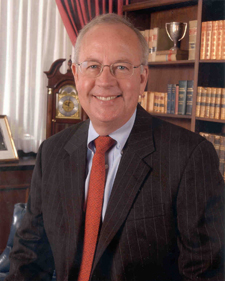
 Below is an op-ed by me that appeared yesterday in the Baptist Press. It revisits the persecution by Baylor administrators of Robert Marks and his work on ID (for the history of what happened, go here). Specifically, it addresses the challenge that Marks’ work on ID is likely to pose to incoming Baylor president Ken Starr. Interestingly, today’s New York Times (go here) hints at the same issue:
Below is an op-ed by me that appeared yesterday in the Baptist Press. It revisits the persecution by Baylor administrators of Robert Marks and his work on ID (for the history of what happened, go here). Specifically, it addresses the challenge that Marks’ work on ID is likely to pose to incoming Baylor president Ken Starr. Interestingly, today’s New York Times (go here) hints at the same issue:
———————————————
Dr. Sloan [Baylor’s former president] angered faculty with his leadership style, and he hired William A. Dembski, a proponent of intelligent design who found little favor with the school’s science departments (and has since left). Dr. Sloan resigned in 2005. Since then, Baylor has had another president and an interim president.
Asked about Baylor’s tumult, Mr. Starr, who knows from tumult, was circumspect.
“A lesson learned is the need for the conversation in the community to remain very vibrant,” he said, a bit vaguely, when asked about the Sloan years. “I want to be very clear that I am not laying any blame at the feet of any of my predecessors,” he added.
———————————————
Yes, “circumspect” is the right word. In any case, here is my op-ed:
FIRST-PERSON: Vindication for I.D. at Baylor?
William A. Dembski | Posted on May 6, 2010
www.bpnews.net/BPFirstPerson.asp?ID=32885
FORT WORTH, Texas (BP)–Baylor University remains a proving ground for SBC controversies. Former Baylor president Robert Sloan’s “2012 Vision” continues, at least for now. This vision rests on two pillars, seeking to establish Baylor both as a top research university and as a school faithful to its Christian heritage. Secularized faculty, who are in the majority at Baylor and forced Sloan’s removal (he is now president of Houston Baptist University), see Baylor’s Christian heritage as a liability and would like to make the university’s slide into secularization complete.
Ken Starr, who becomes Baylor’s new president June 1, therefore faces a crucial test: Will he continue the full Baylor 2012 Vision, advancing not just Baylor’s academic distinction but also its Christian faithfulness, or will he give up on this second pillar of the vision? Starr’s commitment to academic excellence is not in doubt. During his tenure as dean of Pepperdine Law School, he significantly raised its academic standing. The question is what he will do regarding Baylor’s Christian identity.
Starr, no stranger to controversy, seems poised to do the right thing. But good intentions are one thing, decisions and actions are another. Baylor will be sure to test Starr’s mettle. Indeed, his first test is likely to come from an unexpected source, an online college resource known as College Crunch (www.collegecrunch.org). Organizations like this draw traffic to their website (and thus earn their keep) by posting items of interest to prospective college students. One such item, first appearing on the site in March, lists “The 20 Most Brilliant Christian Professors.” On this list is Baylor professor Robert J. Marks II. Here is College Crunch’s description of him (www.collegecrunch.org/…/the-20-most-brilliant-christian-professors): Read More ›

 Below is an op-ed by me that appeared yesterday in the Baptist Press. It revisits the persecution by Baylor administrators of Robert Marks and his work on ID (for the history of what happened,
Below is an op-ed by me that appeared yesterday in the Baptist Press. It revisits the persecution by Baylor administrators of Robert Marks and his work on ID (for the history of what happened,  .
. 